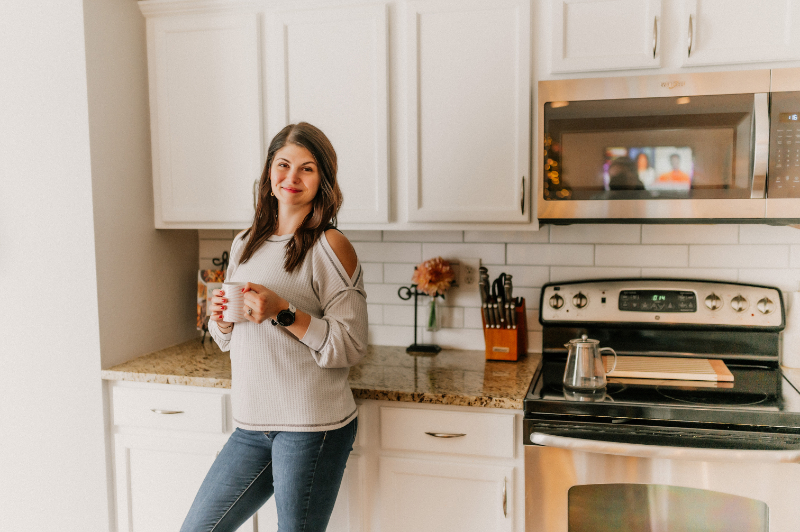Progress vs Perfection: Why Small Wins Matter in OCD Recovery
March 25, 2025
Recovering from OCD isn’t about perfection. It’s about progress—real, messy, imperfect progress. That’s the difference between progress vs perfection—one moves you forward, while the other keeps you stuck. The problem is, OCD and anxiety love to convince you that if you’re not doing something perfectly, it doesn’t count. That if you still have intrusive thoughts, still feel anxious, or still struggle at times, you’re not actually recovering.
But that’s not how this works. OCD recovery is not about never feeling anxious again—it’s about learning to handle anxiety differently. It’s about celebrating small wins, shifting your focus from perfection to progress, and giving yourself credit for the work you’re putting in. Let’s talk about why that matters, how to do it, and how breaking free from perfectionism will change your recovery.

The Nature of OCD Recovery
OCD recovery is not a straight line. It’s a series of ups and downs, wins and setbacks, breakthroughs and challenges. Some days, you’ll feel like you’ve made huge strides. Other days, OCD might throw a curveball that makes you feel like you’re back at square one. (Spoiler: You’re never back at square one. You’ve learned too much to start over!)
This is why progress vs perfection is such an important mindset shift. If you expect recovery to be a perfect, linear process, you’re setting yourself up for disappointment. But if you focus on progress vs perfection—on the fact that you’re learning, growing, and building resilience—you’ll start to see recovery for what it really is: a journey.
Why Small Wins Matter
When it comes to OCD recovery, small wins are everything. Why? Because they add up. They build confidence. They prove that you can handle discomfort, uncertainty, and intrusive thoughts without engaging in compulsions.
A small win might be:
- Resisting a compulsion for five extra minutes before giving in.
- Sitting with an intrusive thought instead of immediately trying to push it away.
- Leaving the house even though anxiety is screaming at you to stay put.
- Accepting uncertainty about a thought or fear instead of seeking reassurance.
None of these wins might feel “big” on their own, but they are. Because they represent progress vs perfection. They show that you’re putting in the work. And that’s what recovery is built on—not on getting it “right” 100% of the time, but on continuing to show up and push forward.
How Perfectionism Undermines Recovery
Perfectionism is one of the biggest obstacles in OCD recovery. It tells you that if you still feel anxious, you’re failing. That if you don’t do an exposure perfectly, it doesn’t count. That if you struggle one day, all your progress is lost.
But perfectionism is a liar. Recovery doesn’t require perfection. It requires persistence.
If you wait until you “feel ready” to challenge OCD, you’ll never start. If you beat yourself up every time you have a tough day, you’ll miss out on all the progress you are making. This is why shifting your mindset to progress vs perfection is so crucial. Because the goal isn’t to never struggle—it’s to keep moving forward, no matter what.

Ways to Celebrate Small Wins
Celebrating small wins in OCD recovery isn’t just nice—it’s necessary. It reinforces your progress, helps rewire your brain, and reminds you that you are making strides, even when it doesn’t feel like it. Here are a few ways to do it:
1. Keep a “Wins” Journal
Write down every small win, no matter how minor it seems. Over time, you’ll have proof of how far you’ve come (which will be helpful on harder days).
2. Use a Reward System
Give yourself small rewards for facing your fears. Not as a way to avoid discomfort, but as a way to acknowledge your courage.
3. Tell Someone Who Gets It
Share your wins with someone who understands OCD recovery—a therapist, a friend, or even an online community. Speaking them out loud makes them feel real.
4. Reframe the “Setbacks”
Instead of seeing setbacks as failures, reframe them as learning experiences. (Because that’s what they are!) Every challenge is an opportunity to practice skills and build resilience.
Shifting Focus to the Journey, Not the Destination
If you see OCD recovery as a finish line you have to reach, you’ll constantly feel like you’re failing. But if you focus on the journey—on showing up, doing the work, and embracing progress vs perfection—you’ll start to see real change.
Recovery isn’t about “getting rid” of OCD. It’s about learning how to navigate it differently. It’s about proving to yourself, over and over again, that you can handle discomfort and uncertainty without letting OCD control you.
That’s why it’s time to stop chasing the same old, recycled mental health advice that makes you feel like a textbook case study. You need progress vs perfection and real, practical strategies that empower you to take charge of your own recovery.

The Tools You Need to Break Free from OCD and Anxiety
This is exactly why I created The OCD and Anxiety Recovery Blueprint—a no-BS course that teaches you the skills you need to become your own therapist. You’ll learn how to get to the root of the issue (not just slap a band-aid on the symptoms), develop the confidence to break free from compulsions, and build long-term resilience. You’ll go beyond the textbook advice and actually implement what works. Because OCD recovery isn’t just about knowing what to do—it’s about actually doing it. And that’s what this course is all about. If you’re ready to stop spinning your wheels and start making real progress, check it out here.
But even when you know what to do, OCD and anxiety can make you forget. Your brain loves to wander, and intrusive thoughts can pull you into loops of fear and doubt. That’s why I created the Break Free Action Cards—an affirmation deck designed to help you take sustainable action. These aren’t just fluffy “feel-good” affirmations. They’re real, practical reminders that help you push back against OCD every time it tells you, You can’t. Because you can. You’ve already proven it. You just need a little reminder sometimes. Grab yours here.
Final Thoughts: Keep Choosing Progress vs Perfection
If you take one thing away from this, let it be this: Progress will always be greater than perfection. Every time you choose to face a fear, sit with discomfort, or resist a compulsion—even for a few extra seconds—you are moving forward.
OCD recovery is hard. Some days, it feels impossible. But you are stronger than you know. And the more you shift your focus to progress vs perfection, the more unstoppable you become.
If you need more support, tune into my podcast, All The Hard Things, for real-talk conversations about OCD, anxiety, and recovery. And be sure to follow me on Instagram for daily tips, encouragement, and behind-the-scenes insights.
You’ve got this. Keep going. Keep choosing progress. And remember—you’re never alone in this!
most popular episodes
Love my podcast?
Episode 112: Postpartum OCD and False Memory OCD
Imagine how in depth I can go in an online course. Instantly downloadable and game-changing. Take the next step towards an amazing life.